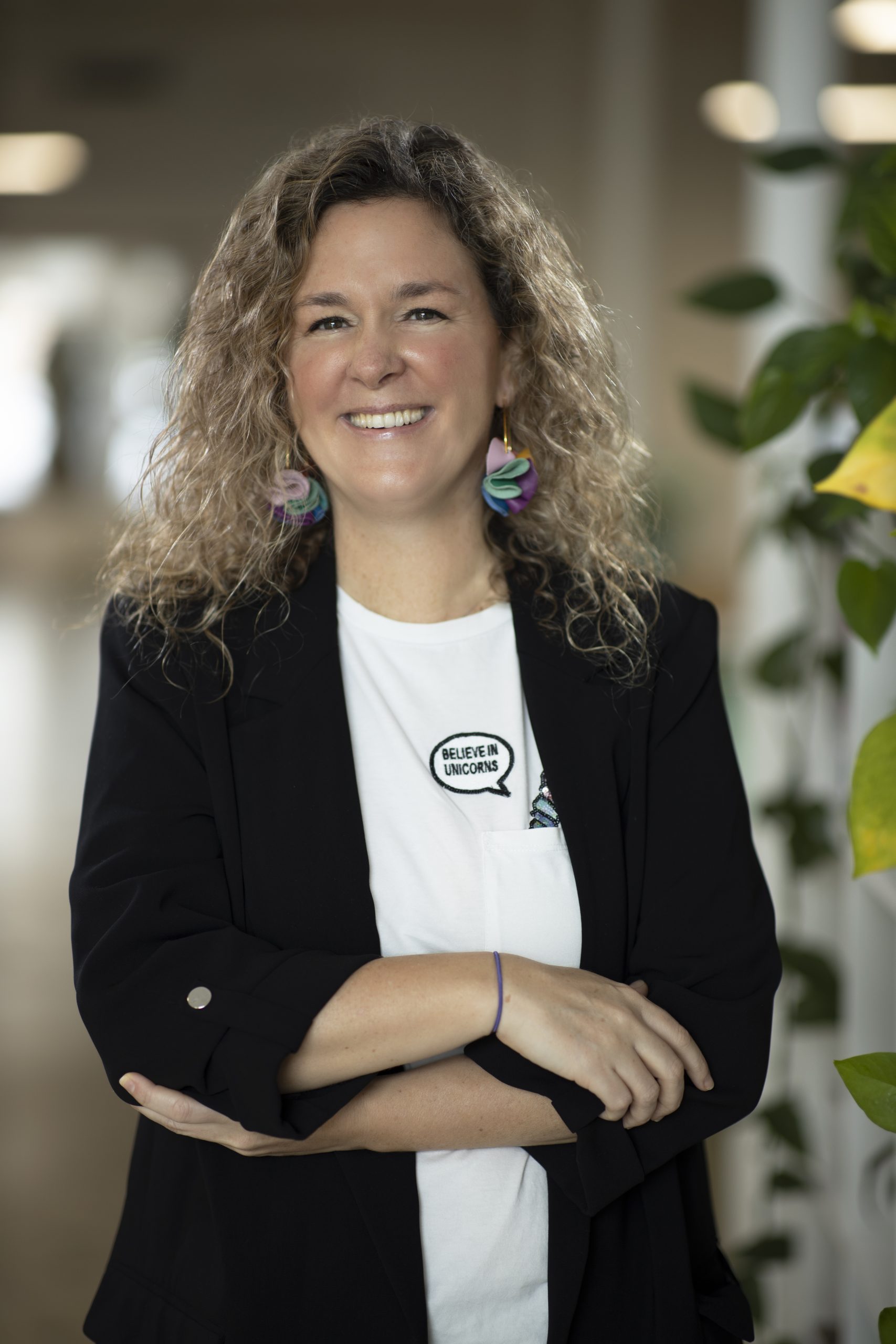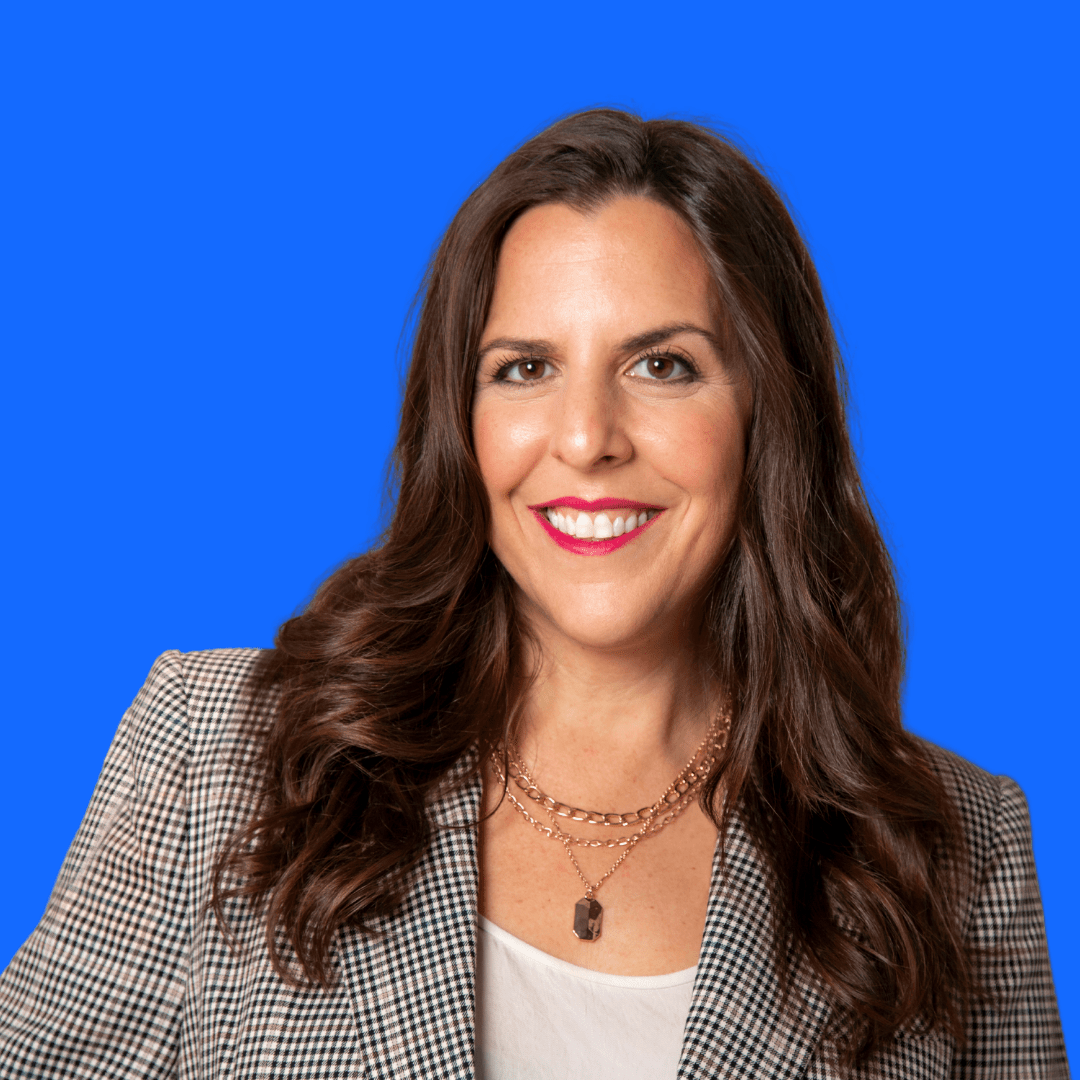This article is part of the Crunchbase Community Contributor Series. The author is an expert in their field and a Crunchbase user. We are honored to feature and promote their contribution on the Crunchbase blog.
Please note that the author is not employed by Crunchbase and the opinions expressed in this article do not necessarily reflect official views or opinions of Crunchbase, Inc.
The Crunchbase “Female Founder Series,” is a series of stories, Q&As, and thought-leadership pieces from glass-ceiling-smashers who overcame the odds and are now leading successful companies.
Laura Gonzalez-Estefani is founder and CEO of TheVentureCity, an international, operator-led venture model designed to make the global entrepreneurial ecosystem more diverse, international and accessible to capital.
Before TheVentureCity, Gonzalez-Estefani was one of the first international growth team executives at Facebook and also held executive roles at eBay and Siemens. She has spent the last four years driving the change she wants to see in the world of VC and startup accelerators.
Since Gonzalez-Estefani founded TheVentureCity, 50 percent of its leadership positions have been filled by women, and its 30-plus employees boast 17 different nationalities. Her co-founder, Clara Bullrich, is also a female Hispanic entrepreneur from the banking world.


Q: As a female founder, how did you learn to overcome societal barriers to achieve global impact?
My mother was from the first generation of Spanish women to work outside of the home, and my father was an entrepreneur: They both pushed me to be independent and resilient, and it’s something I’ve carried with me throughout my life. In business, I’ve learned to reframe the barriers that I face as a woman into opportunities to enter a league of my own. The limitations society places on me because of my sex make me more motivated to succeed — they make me accustomed to overcoming problems every day and help me thrive under the most testing conditions.
Just as my mother and father were my role models, I learned that being a role model can help others make things happen, it can inspire change, especially when it comes to diversity and paving the way for fellow female founders.
Q: Did/do you feel welcome and accepted as a woman in Silicon Valley/the VC space?
I had no expectations to be honest, I didn’t stop to think if I was welcome or not, and it’s not something I think about as I continue my journey. Instead, I focus on seeing opportunities, seizing them with all my energy and persistence, and building something great. I never ask for permission or dwell on the obstacles that may come before those opportunities.
I felt that Silicon Valley was fascinating, full of energy, and the place where the craziest ideas were brought to life. That said, I did notice that it was harder for entrepreneurs who weren’t from a Silicon Valley background to stand out in that sphere, even though they were as interesting, in my opinion. For people to open their agendas to you, you need to live there and have a network of people who can validate or vouch for you. I certainly think that the small circles of more traditional startup hubs need to expand to overcome a lack of diverse thinking and experience.
Ultimately, I am a Hispanic woman immigrant in the U.S., in my 40s, and mother of three, so I check all the boxes to scare investors and founders in Silicon Valley, and yet today I feel empowered and spend my time going beyond the expectations of my investors, founders and team. For now, I am extremely proud to be breaking barriers for myself, my children and others.
Q: How have you integrated your values and mission into your own company structure and professional career as a whole?
What I say, what I do, and how I think must be aligned, or I will be pretending to be someone that I’m not. It’s not easy to bring these components of yourself together, so I try to simplify things and act on them as soon as possible. With this mentality, I sleep like a baby knowing that my natural instincts are always part of my decision-making.
Diversity runs through my veins too, so it’s in every corner of the teams and founders we work with. TheVentureCity was founded by two women, we have more than 17 nationalities on the team, and almost 50 percent of the company is female. I take great care to ensure there is no disconnect between who I am, what I believe, and what I practice when it comes to diversity. We don’t need to conduct workshops or reviews to convince our founders of the benefits of being D&I conscious, we show them the success it brings every day.
Q: How did you network and find the individuals/communities you needed to succeed?
I’m very sociable, I love meeting people and hearing about their visionary ideas and how they move forward with their plans. I’m a “doer” at heart, I trust that I can do anything because I have covered all bases from the bottom to the very top in my career. When it comes to the people who have supported me along the way, I know that communities are built within communities, so I mingle with as many new people as possible.
Mostly we identify a particular company, founder or industry that piques our curiosity and then we test the product, we play around with it so that we have valuable feedback as a customer/user and also as potential investors. We dive into other similar products, we benchmark them, we become power users of that product.
We then organize a meeting “team to team” and take care to let them speak as much as they like — even the smallest throwaway comment can lead to an exciting new partnership or path.
Q: What is the most valuable lesson you’ve learned as the founder of your own company, and working with so many different founders?
Teams are everything, saying no is key, don’t sacrifice your principles, and communication will always matter. You need to be purposeful about the people you bring in with you, ensuring that they align with your mission and vision. Even if you don’t have a product yet, you need to communicate where you’re going and what you’re trying to achieve whenever you attempt to get people behind you. You should be as ambitious as possible — you want to get people excited about what you’re building together and, as a team, we need to understand that we are the key to making it happen.
When I first pitched TheVentureCity to some of the earliest team members, I did so on a napkin. I laid out the vision, what excited me, and approached it from the angle of “Here’s what I’m trying to solve.” Before even attempting to raise money for TheVentureCity, I laid out the company values: what we stand for and how we operate. Then I made sure that we only approached investors and founders who shared those values. The people you build with are the key. Showing your vulnerability and allowing them to help you is an act of bravery and maturity, not the opposite.
Q: What advice do you have for aspiring female entrepreneurs going against the odds in the current climate, including fundraising?
You are going to grow and learn in ways that you couldn’t have imagined. You get more from rejection, closed doors and steep slopes than from sailing through processes without any friction. Think that for every yes you get, you’ll most likely get 80 nos. There is no such thing as failure, only a learning curve and a chance to reframe your perspective. Try to always get feedback so that you can learn to do it better — insist on getting feedback.
Of course, there are steps along the way to make your climb a little easier. Curate your own support networks — know who is specialized in what areas, who can reconnect you when you’re at a loose end, and who motivates you. Be brave, build freely and never ask for permission.
There are lots of networks dedicated to women in tech and other industries. I always recommend joining these and leveraging their support as much as possible. Sharing with fellow entrepreneurs is never easy (for women or men) but it can open doors you didn’t know existed and provide you with the expertise of those who have gone before you.
Q: What advice would you give to other investors about the benefits of supporting global and diverse teams, and why do you feel that this is the key to future success?
At this point, we know that more diverse teams produce higher returns because they are able to validate so many different angles, especially in tech. But more than that, working with diverse teams is fun, it’s energizing, and one of the most powerful channels toward innovation. When investors support people from all over the world, they infuse diverse talent into their portfolio.
Consumers globally care about the same thing in different ways; a valuable product that solves a problem or answers a need. All companies have to go through the motions of building, validating, measuring and iterating a product/service, but a diverse team does so with a broader scope of skills, knowledge and considerations, which shapes a more complete product for a wider audience.
As investors, we need to put our capital where our mouth is. We can’t preach diversity when our companies are not diverse, and even less ask the founders to build diverse companies. It has to be a play of leading by example.
Q: What are you most excited about for 2021 and beyond?
We are very excited about tech that makes cities more liveable, mobility being one, green energy another. Also, at-home health monitoring is something that fascinates us, we believe there is so much more you can do for your everyday health than just go to a doctor. We believe that by monitoring how our body is affected by our lifestyle can make us have a better quality of life. Also the fact that we are finally learning to take care of our mental health is another super interesting space. With this human augmentation, the brain power, all these new discoveries and devices that will help us treat illnesses that have been around, is something that we want to dive deeper into. And of course, any enhancement of how we traditionally do things, with new tech, making processes more efficient, logistics, supply chain and blockchain as an underlying tech for so many things.
This one is closer to home for us: We’re psyched about the attention #Miamitech is getting, deservedly, as a growing global startup hub. We see the future of startup ecosystems as being completely decentralized and international, which is why a city like Miami, where businesses can connect with the rest of the world, is a prototype.
We are excited about being present, enjoying today and learning for tomorrow.





